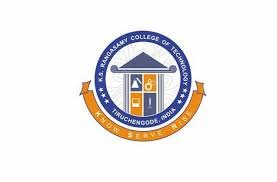Career & Job Opportunities: M.Tech. Nano Science Technology Course
An M.Tech. in Nano Science and Technology program opens up a world of diverse and promising career opportunities for graduates. This multidisciplinary field is at the forefront of scientific and technological advancements, and professionals in this area are highly sought after across various industries. Here, we explore the extensive career and job opportunities available to M.Tech. Nano Science and Technology graduates:
1. Research and Development (R&D):
One of the most prominent career paths for M.Tech. Nano Science and Technology graduates in research and development. They can work in both private and public sector research institutions, focusing on cutting-edge nanotechnology projects. R&D professionals contribute to the development of new materials, devices, and applications.
2. Nanoscientist:
Graduates can pursue careers as nanoscientists, specializing in various aspects of nanotechnology. They conduct research, experiments, and investigations to advance our understanding of nanoscale phenomena, leading to groundbreaking discoveries.
3. Nanotechnology Engineer:
Nanotechnology engineers are responsible for designing and developing nanoscale materials, devices, and systems. They work on creating innovative solutions in electronics, materials science, and other fields.
4. Nanobiotechnologist:
In the field of biotechnology, M.Tech. Nano Science and Technology graduates can specialize in nanobiotechnology. They design nanoscale tools and technologies for applications in medicine, drug delivery, and diagnostics.
5. Nanoelectronics Engineer:
With the ongoing miniaturization of electronic components, nanoelectronics engineers play a crucial role in designing and fabricating nanoscale electronic devices and circuits. They contribute to the development of faster and more efficient electronic systems.
6. Nanomaterials Scientist:
Nanomaterials scientists focus on the synthesis and characterization of nanomaterials with unique properties. These materials have diverse applications in fields such as energy, environmental science, and manufacturing.
7. Nanophotonics Specialist:
Nanophotonics experts work with nanoscale optical components and devices, enabling the development of advanced optical technologies, including ultra-compact sensors, high-resolution imaging systems, and optical communication devices.
8. Nanomechanical Engineer:
Nanomechanical engineers specialize in designing and studying mechanical systems at the nanoscale. They contribute to the development of nanosensors, micro-electromechanical systems (MEMS), and nanorobotics.
9. Nanofabrication Specialist:
Nanofabrication specialists are involved in the precise manufacturing of nanoscale structures and devices. They work with state-of-the-art fabrication techniques, enabling the mass production of nanotechnology products.
10. Nanomedicine Researcher:
In healthcare and medicine, M.Tech. Nano Science and Technology graduates can pursue careers as nanomedicine researchers. They develop targeted drug delivery systems, nanoparticles for diagnostics, and innovative therapies.
11. Energy and Environmental Scientist:
The energy sector offers numerous opportunities for nanotechnology professionals. They can work on improving energy storage solutions, developing efficient solar cells, and creating materials for pollution control and sustainable energy generation.
12. Semiconductor Industry Specialist:
The semiconductor industry heavily relies on nanoscale components. Graduates can work in this sector, contributing to the design and fabrication of semiconductor devices and integrated circuits.
13. Academic and Teaching Roles:
For those interested in academia, M.Tech. Nano Science and Technology graduates can become educators and researchers at universities and colleges. They teach nanotechnology courses and supervise research projects.
14. Quality Control and Testing:
Professionals in this field ensure the quality and reliability of nanotechnology products. They conduct testing and quality control procedures to maintain high standards in nanomanufacturing.
15. Entrepreneurship and Startups:
Many graduates choose to start their businesses or join nanotech startups. They develop innovative products, patent novel technologies, and seek investment opportunities in the ever-growing nanotechnology market.
16. Regulatory Affairs and Policy:
Some professionals work in regulatory affairs and policy-making roles, focusing on the safety, ethics, and regulations surrounding nanotechnology applications. They contribute to shaping responsible nanotechnology practices.
17. Government and Defense Sectors:
Government agencies and defense organizations employ nanotechnology experts for research and development projects related to national security, aerospace, and defense technologies.
18. Consulting and Advisory Roles:
Consulting firms often seek the expertise of nanotechnology professionals to provide advisory services to businesses, helping them navigate nanotechnology applications and strategies.
19. International Collaboration:
Nanotechnology is a global field, and graduates have opportunities for international collaboration and research partnerships, broadening their horizons and knowledge base.
20. Sustainable Technologies:
Professionals in this field can work on sustainable technologies, including water purification systems, eco-friendly materials, and energy-efficient solutions, contributing to environmental sustainability.
21. Career Advancement and Leadership:
As professionals gain experience, they can move into leadership roles, manage research teams, and lead innovative projects, driving the advancement of nanotechnology.
22. Continuous Learning and Skill Development:
The dynamic nature of nanotechnology ensures that professionals engage in continuous learning and skill development to stay updated with the latest advancements.
23. Global Impact:
Nanotechnology has a significant impact on various sectors, from healthcare to clean energy. Professionals in this field have the opportunity to contribute to solutions for global challenges.
 2 Years
2 Years
 Post Graduate
Post Graduate
 Engineering
Engineering
 Full Time
Full Time







 back
back